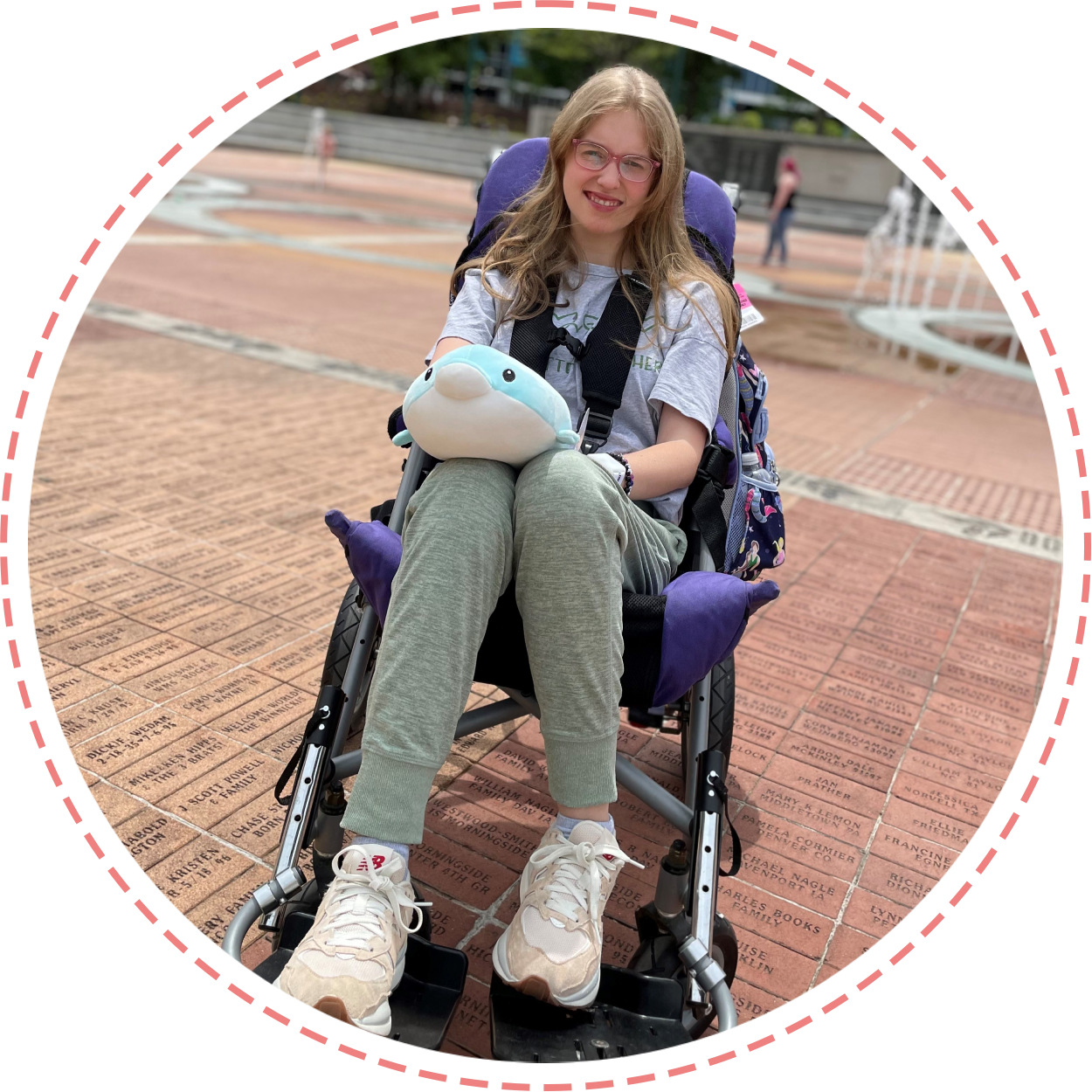
Tailored Services for Medically Complex Needs
The CAP/C program offers a range of services designed to support medically complex children and their families. Services include tailored case management, in home care, home and vehicle modifications, and more to make a meaningful difference for these children and their families.
Assistive Technology
Provides beneficiaries with access to technology and devices that can increase, improve, or help maintain functional capabilities, improve access to their environment, and address beneficiary coverage issues. This service may be used for:
- Adaptive or Therapeutic Equipment
- Specialized Monitoring Systems
- Ceiling Track Lift Systems
- Adaptive Tricycles
Attendant Nurse Care
A consumer directed service that provides nurse care to a beneficiary who has substantial, complex, and continuous skilled nursing care needs.

Our Diverse Services
Case Management/
Care Advisor
Directs and manages beneficiary’s special healthcare, social, environmental, financial, and emotional needs to maintain continual community integration. A beneficiary using provider-led services has a case manager, and one using consumer-directed services has a care advisor.
Community Integration
Assists a beneficiary in jeopardy of losing their community placement due to tenancy-related issues. It includes funding to assist with developing a housing plan, identifying resources, and crisis intervention when facing eviction. Potential vendors could be community-based organizations or legal aid. Some potential services in addition to legal assistance include inspections to ensure a safe living environment.
Support for
Home Transitions
Assists new applicants transitioning from a hospital, nursing, or special care setting to their home. Funds are allocated to pay the necessary, one-time expenses for the beneficiary to establish a basic living arrangement including:
- Security deposits or set-up fees
- Equipment, essential furnishings, and household products
- Up to a one-month supply of medication
Coordinated Caregiving
Supportive services by a live in caregiver to assist with Activities of Daily Living and Instrumental Activities of Daily Living, adaptive skill development and skill-level intervention. The live-in caregiver works through a home care agency and is paid a monthly stipend.
Financial Management
A service provided if the caregiver is directing the beneficiary’s care under the Consumer Direction Plan. The service ensures that consumer directed funds outlined in the service plan are managed and distributed as intended. An approved financial manager performs financial intermediary services to reimburse the personal assistant and designated providers.
Goods and Services
Provides equipment, services, or supplies, that may increase the beneficiary’s ability to perform Activities of Daily Living or decrease dependence on personal care type or other Medicaid funded services. Supplies may include disinfectant wipes or spray, hand sanitizer, and a touch free thermometer.
Home Accessibility and Adaptation
Physical adaptations or minor modifications, as identified during an assessment to improve, maximize, or enhance the participant’s mobility, safety, independence, and integration into the community. This service may be used in a primary private residence where the beneficiary resides and is owned by the beneficiary or family. Rental residences may be modified with a portable modification that is transferrable. Includes germicidal air filters for beneficiary’s home.
In-Home Aide Services
Offers hands-on assistance with at least 2 activities of daily living. This service is provided by a Nurse Aide I. A Nurse Aide I may be hired through:
- Home Health Agency
- In-home Aide Agency
- Consumer Direction
Nutritional Services
Provides physician ordered health supplements, vitamin or mineral supplements, herbal preparations, and over-the-counter medications that are directly related to the primary physical medical condition. Must be determined that request is medically necessary but not available under other insurance or Medicaid benefits.

Provides access to the community to obtain medication, food, attend non-medical appointments, and meet goals of community integration. Available to beneficiaries with limited to no access to transportation and does not have funds to purchase transportation.
Delivers hands-on care to beneficiaries who require extensive assistance with 2 activities of daily living. This care is performed by a Nurse Aide I or II. A Nurse Aide I or II may be hired through:
- Home Health Agency
- In-Home Aide Agency
- Consumer Direction
Provides a one-time pest eradication treatment from a pest control vendor. The beneficiary must be living in their own home, and pest control is not included in their lease.
Pests may include:
- Bed bugs
- Rodents
- Uncontrollable ants
- Roaches
Provides short-term support for caregivers or beneficiaries. It can be used as day, evening, or overnight care to meet a range of beneficiary’s needs, such as caregiver relief. Respite can be provided in your home or in a nursing facility or hospital with swing beds. Up to 720 hours of respite is available during the fiscal year.
Provides an adaptive car seat or vehicular vest for the beneficiary based on an assessment of need. This service also includes a performance assessment to determine the type of equipment needed, training to the caregiver and beneficiary in the operation and maintenance of the equipment and use. The service also includes the repair of the equipment if the repair does not exceed the cost of purchasing new equipment.
Provides training, orientation, and treatment regiments to build skills for the beneficiary or enhance the skills of the family or caregiver. CPR and Personal Protective Equipment training available for prospective employees. Services can be provided by community colleges, universities, counselors, or an organization with a training or class curriculum.
Provides adaptations, alterations, installation of controls, services to an automobile or van that is the beneficiary’s primary means of transportation. The vehicle must be owned by the beneficiary or the primary caregiver and must be covered under an automobile insurance policy that provides sufficient coverage to replace the modification in the event of an accident. This service may be approved for a previously modified vehicle when the modification is intended to meet the beneficiary’s care needs and allows for physical safety through transport.
Application and
Assessment Support
For guidance on applying, preparing for your initial assessment, or handling denials, please contact us. We're here to help you navigate every step of the process and ensure you receive the support you need.

